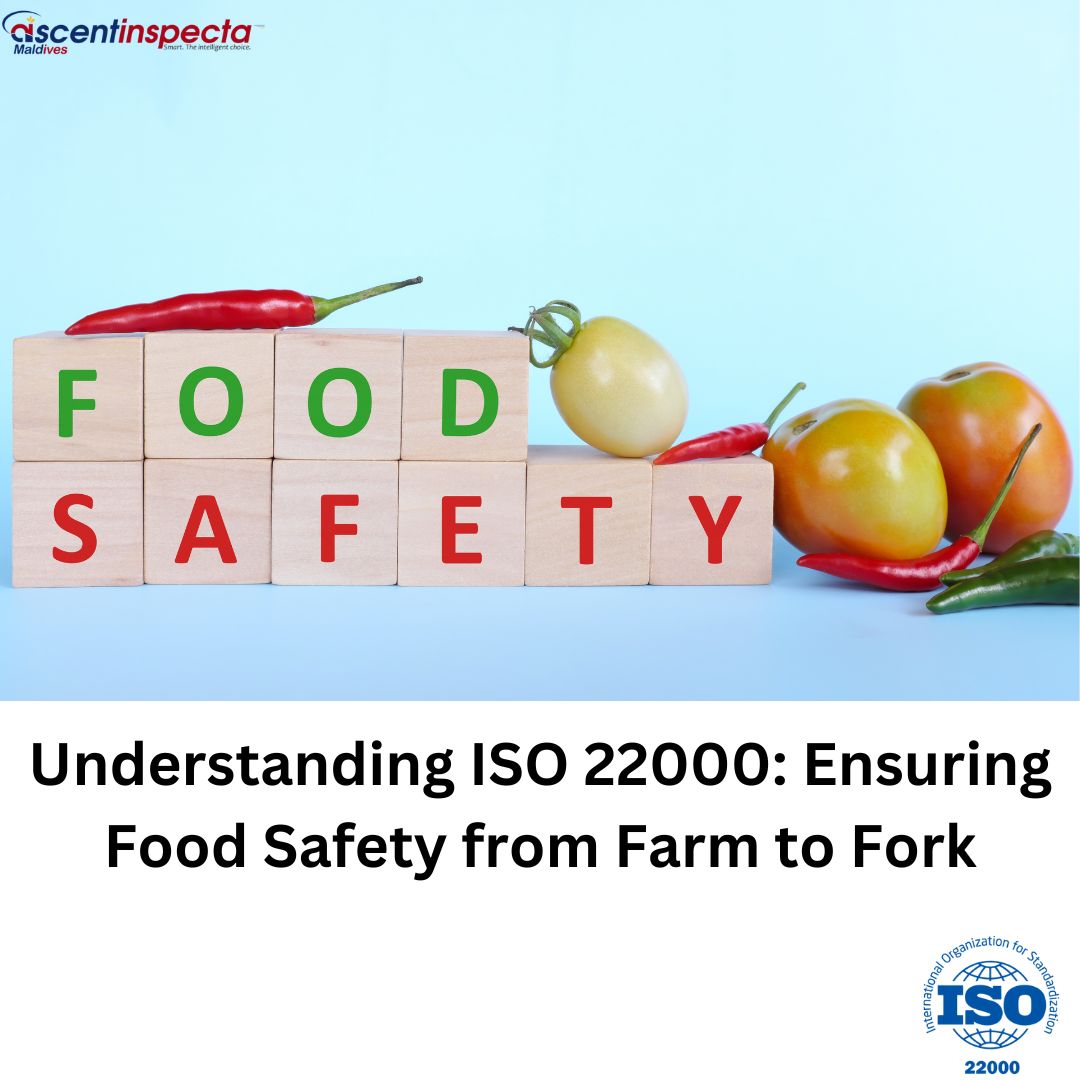Blog Details

Published: July 16, 2025
Understanding ISO 22000: Ensuring Food Safety from Farm to Fork
Introduction
In a world where food safety is a top priority, every player in the supply chain is under pressure to deliver safe, high-quality products. ISO 22000 is the international standard for a Food Safety Management System (FSMS) that ensures food safety from production to consumption.
What is ISO 22000?
ISO 22000 is an international standard published in 2005 and revised in 2018. It specifies FSMS requirements to consistently provide safe food by integrating Hazard Analysis and Critical Control Points (HACCP) with a comprehensive system management approach. It aligns with ISO’s High-Level Structure (HLS), making it compatible with other standards like ISO 9001 and ISO 14001.
Key Components of ISO 22000
- → Interactive Communication: Enables clear dialogue across the food chain to identify and manage hazards.
- → System Management: Incorporates leadership commitment, resource control, planning, documentation, verification, and continual improvement.
- → Prerequisite Programs (PRPs): Foundational hygienic, operational, and infrastructure controls like GMP and sanitation.
- → HACCP Principles: Involves hazard identification, CCP determination, critical limits, monitoring, corrective action, and record‑keeping.
- → Continual Improvement (PDCA): Applies Plan‑Do‑Check‑Act cycles at both FSMS and operational levels.
Who Needs ISO 22000?
Any organization in the food chain—regardless of size or sector—can implement ISO 22000:
- → Primary producers (e.g., farmers, fishermen)
- → Food manufacturers, packagers, and processors
- → Storage, transportation, retailers, and catering services
- → Suppliers of ingredients, packaging, cleaning agents, equipment
- → Even non-food organizations involved in food-related operations.
Benefits of ISO 22000 Certification
- → Enhanced Food Safety: Proactive hazard control reduces risks of contamination and foodborne illness.
- → Regulatory Compliance: Aligns with both international and national food safety laws.
- → Customer Confidence & Market Access: ISO certification builds trust and supports entry into new markets.
- → Operational Efficiency: Streamlined processes, waste reduction, and cost savings.
- → Integration Capability: Compatible with other ISO standards and global food safety schemes.
ISO 22000 vs. FSSC 22000 vs. HACCP
- → HACCP: A foundational, non-certifiable hazard-control method.
- → ISO 22000: Certifiable FSMS standard incorporating HACCP and management system elements; globally recognized but not GFSI-benchmarked.
- → FSSC 22000: Extends ISO 22000 with additional PRPs, recognized by the Global Food Safety Initiative (GFSI).
Steps to Achieve ISO 22000 Certification
- → Gap Analysis: Compare current food safety practices to ISO 22000 requirements.
- → Training & Awareness: Educate staff on FSMS roles, HACCP, and PRPs.
- → Documentation: Develop policies, procedures, hazard analysis, PRPs, CCP records.
- → Implementation: Put processes into practice and monitor for non-conformities.
- → Internal Audit: Review system performance and fix gaps.
- → Management Review: Senior leadership evaluates FSMS effectiveness.
- → Certifying Audit: Undergo a Stage 1 document review and Stage 2 on-site evaluation.
- → Surveillance & Re-certification: Annual audits and renewal every three years.
Challenges in Implementing ISO 22000
- → Limited in-house expertise or trained personnel
- → High initial costs for implementation
- → Resistance to organizational change
- → Extensive documentation and auditing processes
These can be addressed with phased implementation, professional consultancy, and staff engagement.
Why ISO 22000 Matters More Than Ever
With increasing foodborne illness outbreaks, global supply chain disruptions, and heightened consumer expectations, food safety is a critical public health issue. ISO 22000 provides a standardized global framework that supports transparency, traceability, and resilience.
Final Thoughts
ISO 22000 offers a comprehensive, globally accepted system for managing food safety, helping organizations prevent hazards, comply with regulations, and build trust. Whether you're a small primary producer or a multinational food processor, implementing ISO 22000 sets you on the path for safer, more sustainable growth.
Considering certification? Partner with an experienced ISO consultancy to ensure a smooth, successful implementation.
Comments Section
We’d love to hear your thoughts,Feel free to leave a comment below:
